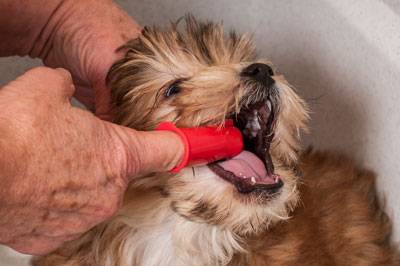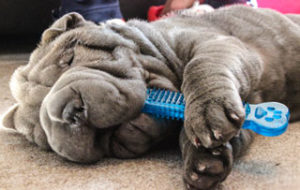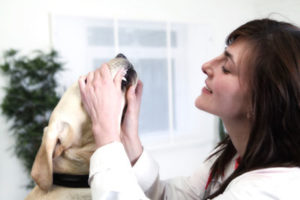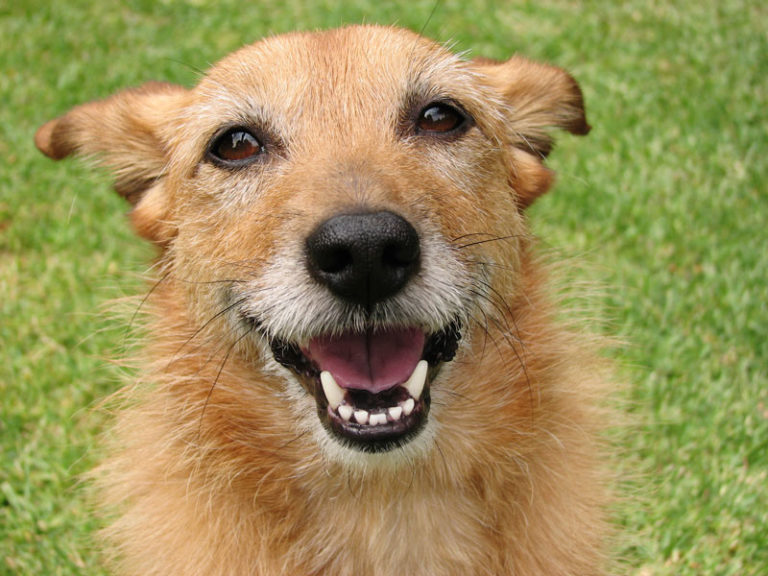You wouldn’t dream of neglecting your own teeth. Frequent brushing and regular visits to the dentist are part of your healthcare routine. What you might not know is that dental care is just as important for your dog as it is for you. Dogs are just as susceptible to gum disease as humans are, and a lack of dental care can cause your dog to suffer from infected gums, missing teeth and even heart or kidney disease. Here are some tips on how to keep your dog’s teeth healthy.
Brushing

One of the best things you can do for your dog’s teeth is to brush them as often as possible. Once a day is ideal, but if you can’t manage that, several times a week is good. Use a canine toothbrush and canine toothpaste to do the job. You can buy both from pet supply retailers. Canine toothbrushes come in the form of rubber finger brushes or long-handled toothbrushes that look similar to human toothbrushes. You can also use gauze wrapped around your finger as a homemade toothbrush. Canine toothpaste comes in flavors that dogs like and are safe for the dog to swallow.
The best way to brush your dog’s teeth is to gently rub the teeth and gums with the toothbrush, going over one or two teeth at a time, using a back and forth motion. Be sure to brush along the gum line to help remove plaque, and don’t forget the molars way in the back.
Chew Toys

These days, pet supply retailers sell a variety of chew toys designed to help keep canine teeth clean and gums healthy. Veterinarians recommend giving your dog dental chews that are not so hard that your dog could break a tooth while biting down on it. The chew should give a little when the dog bites into it, and then soften as the dog continues to gnaw.
Vet Visits
Your dog should see a veterinarian once a year for an overall checkup. During the exam, the vet will look in your dog’s mouth to get a view of his teeth and gums. Most dogs need to have their teeth professionally cleaned at some point in their lives, so your vet might recommend a dental workup. In most cases, this means your dog will be placed under anesthesia so the veterinarian can clean deep under his gums. Some vets also offer the option of anesthesia-free cleaning, although critics of this technique say these kinds of cleanings are not as thorough as the procedure performed under anesthesia.

Watch for Trouble
If you notice your dog having difficulty eating, pawing at his muzzle or showing any discomfort related to his mouth, make an appointment with a veterinarian right away. An infected tooth, an abscess in the gum, or a broken or loose tooth could be the culprit. Your veterinarian can treat the problem or might refer you to a veterinary dentist for treatment.
Watching out for your dog’s teeth is an important part of his overall care. Remember: a healthy mouth means a happy dog.
About the Author: Audrey Pavia is an award-winning freelance writer and author of “The Labrador Retriever Handbook.” She is a former staff editor of Dog Fancy, Dog World and The AKC Gazette magazines. To learn more about her work, visit www.audreypavia.com and hollywoodhoofbeats.net





